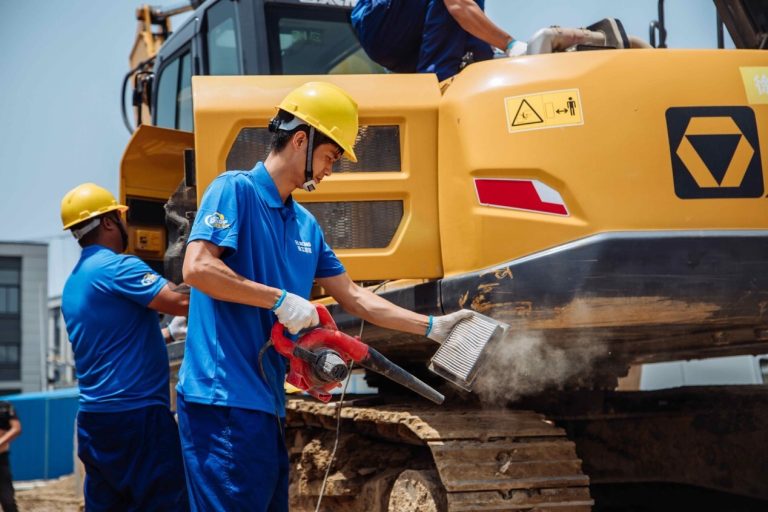Global Heatwave Poses Unique Challenges to Construction Sites
In July 2024, the world experienced record-breaking temperatures, with the 22nd and 23rd being the hottest days ever recorded, according to ERA5 data. This extreme weather event has impacted billions globally, with construction sites particularly affected by prolonged high temperatures and intense humidity. These challenging conditions test not only human endurance but also the performance and reliability of construction machinery used in critical operations.
XCMG Machinery’s Top Safety Recommendations
To address these issues, XCMG Machinery (SHE: 000425), a leading name in construction equipment, has released its top five recommendations for maintaining safety during severe heat and high humidity conditions. These recommendations aim to ensure safety and efficiency on construction sites during the ongoing heatwave.
1. Maintain Continuous Cooling Environments
Contractors and fleet managers must regularly inspect cabin air conditioning systems to prevent potential issues. The air conditioning filter, located behind the driver’s seat, can become clogged, reducing airflow or causing evaporator freezing. To mitigate these issues, clean or replace the filter every 200 hours, or more frequently in dusty environments. Additionally, the external AC filter should be cleaned every 500 hours by gently tapping or using compressed air from the inside out. Replace the filter after three cleanings to maintain optimal filtration.
2. Ensure Vent Maintenance for Safety
Air conditioning vents should be regularly checked, not just for comfort but also for safety. Debris entering air ducts can lead to disruptive noises or damage to fan motors, creating substantial safety hazards. Keeping vents clear helps maintain a safe working environment and ensures that the ventilation system operates efficiently.
3. Keep Radiators Clean
The radiator, which is typically positioned at the front of most machines’ water tanks, is crucial for the effectiveness of air conditioning systems. Maintaining a clean radiator prevents blockages that could lead to higher failure rates and unnecessary operational disruptions. Regular cleaning helps ensure that the radiator functions effectively and that the cooling system remains operational under extreme conditions.
4. Incorporate Adequate Cooling and Rest Periods
With the increased workloads during summer, it is essential to schedule sufficient rest periods for both workers and machinery. Overheating and overloading can compromise the safety and performance of equipment. By incorporating regular breaks and allowing machinery to cool down, contractors can prevent potential breakdowns and extend the lifespan of their equipment.
5. Adjust Operation Procedures
Higher temperatures can cause moisture accumulation in fuel systems, leading to performance issues. To address this, summer operation procedures should include regular checks on diesel exhaust fluid tanks and frequent draining of water separators. These measures enhance fuel efficiency and prevent malfunctions, ensuring that machinery operates smoothly even in extreme heat.
Proactive Safety Measures Ensure Project Continuity
Adhering to these guidelines will help contractors keep construction projects on track while safeguarding health and equipment. A proactive approach to maintenance and safety is essential for navigating the challenges posed by severe summer weather. By implementing these recommendations, construction sites can maintain operational efficiency and reduce the risk of accidents and equipment failures.


